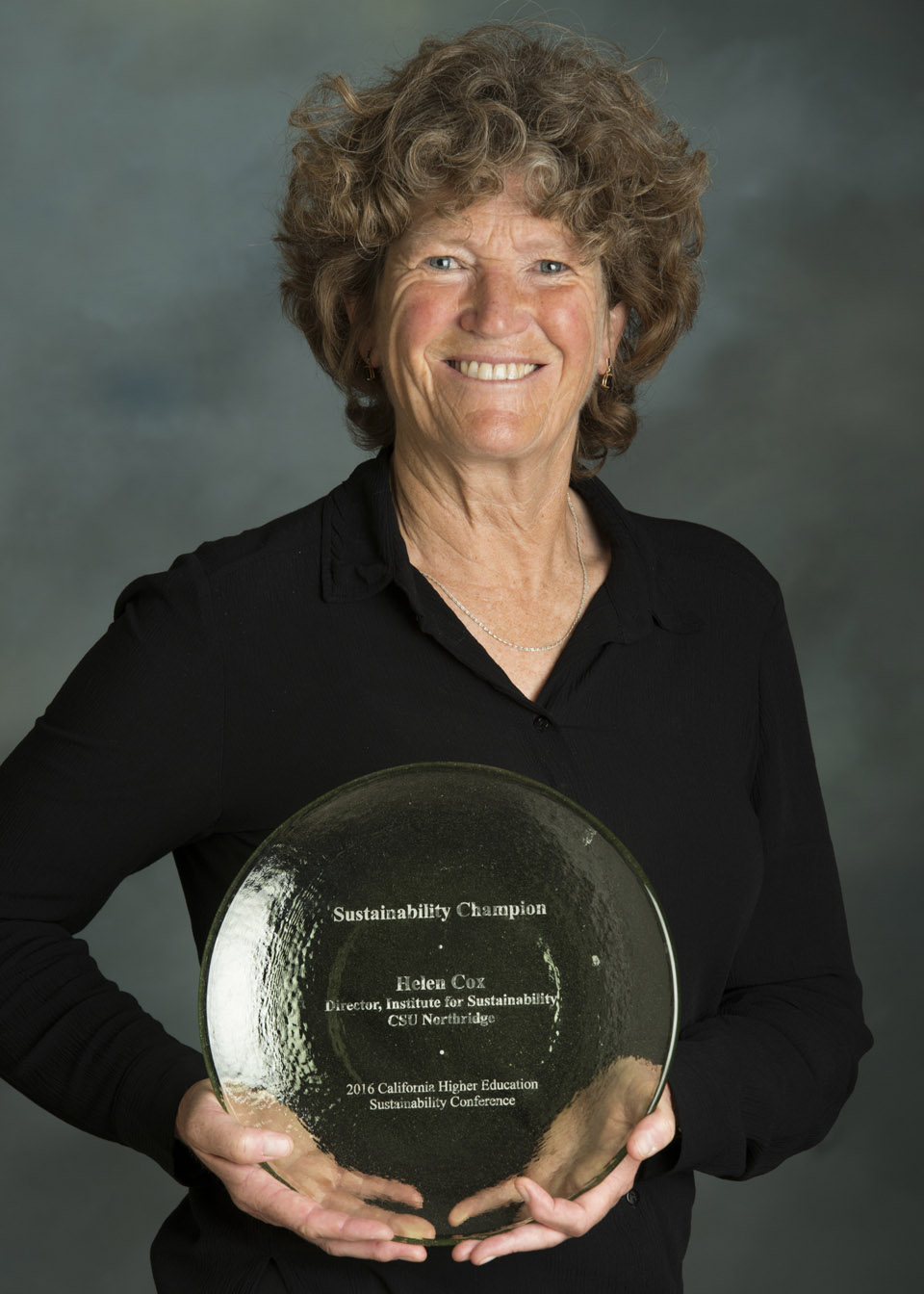CSUN Professor Named Sustainability Champion Award Winner
With startling new statistics about climate change released every day, many wonder what can be done to stop the environmental crisis facing the Earth.
One person working to make a significant impact by educating future generations of their role in healing the planet is California State University, Northridge professor Helen Cox, who received the Sustainability Champion award recently at the California Higher Education Sustainability Conference. Now in its 15th year, the conference is organized by private and public colleges, in hopes of fostering dialogue on the environmental practices of higher education institutions.
Cox has been a faculty member in the Department of Geography since 2000 and director of the CSUN Institute for Sustainability. She participated alongside CSUN professors in a campus group called the Green Core Team. The team was unimpressed with many students’ lack of knowledge about climate change and other global issues. With the support of then-CSUN Provost Harry Hellenbrand, the leaders formed the Institute for Sustainability in 2008 to coordinate the efforts of the different campus departments toward a more green-conscious campus.
Cox became the institute’s director shortly after its beginnings. She immediately got to work, establishing programs to promote sustainable practices in every facet of university life.
“One of the first things we did is create a minor in sustainability,” Cox said. “We think that sustainability is something students should learn along with a selected discipline, and can be paired with anything they’re doing.”
Cox acknowledged she could not have done this without the support of the campus community. CSUN has made great strides toward greater environmental consciousness in recent years — highlighted by the creation of the institute, as well as President Dianne F. Harrison’s participation on a number of boards for national sustainability committees.
Cox also has implemented a number of new programs designed to inform students about practicing sustainability in their daily lives, such as organic farming and composting. Looking ahead, Cox said she hopes the institute will become more involved with the Michael D. Eisner College of Education.
“In order to really affect change over the next few generations, there’s going to be a big element of cultural behavioral change that has to take place — and starting with young people is the best way to affect that change,” she said.
Cox credited her colleagues and university leaders for their work and support after receiving the Sustainability Champion Award.
“I’m very honored to get the award, and I’d like to recognize all the people that made that possible,” Cox said. “The whole Green Core Team and the rest of the staff at the institute — and the support of the president, who has really made a difference.”


 experience
experience